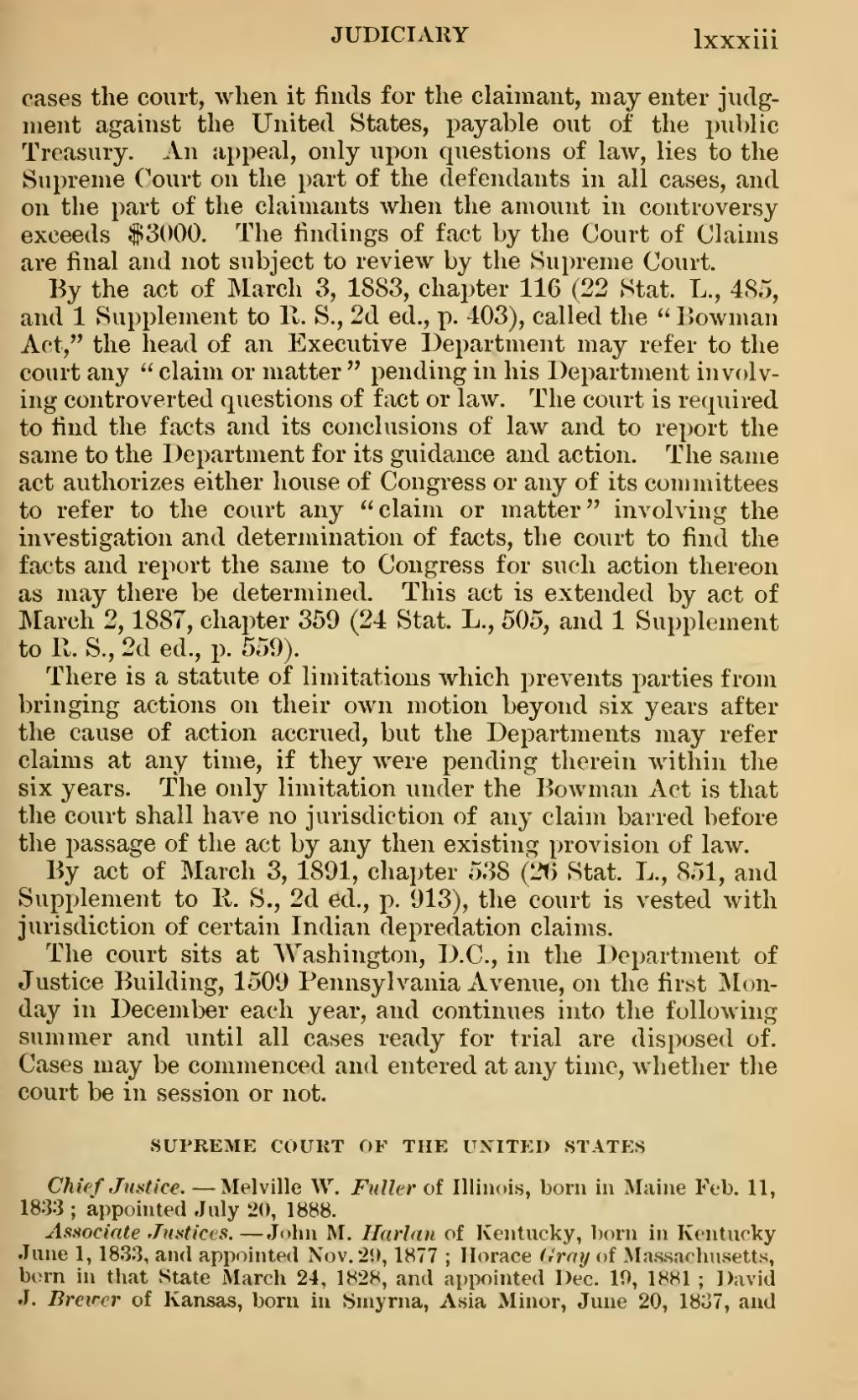JUDICIARY Ixxxiii cases the court, when it finds for the claimant, may enter judg- ment against the United States, payable out of the public Treasury. An appeal, only upon questions of law, lies to the Supreme Court on the part of the defendants in all cases, and on the part of the claimants when the amount in controversy exceeds f 3000. The findings of fact by the Court of Claims are final and not subject to review by the Supreme Court. By the act of March 3, 1883, chapter 116 (22 Stat. L., 485, and 1 Supplement to 11. S., 2d ed., p. 403), called the " Bowman Act," the head of an Executive Department may refer to the court any " claim or matter " pending in his Department involv- ing controverted questions of fact or law. The court is required to find the facts and its conclusions of law and to report the same to the Department for its guidance and action. The same act authorizes either house of Congress or any of its committees to refer to the court any "claim or matter" involving the investigation and determination of facts, the court to find the facts and report the same to Congress for such action thereon as may there be determined. This act is extended by act of March 2, 1887, chapter 359 (24 Stat. L., 505, and 1 Supplement to R. S., 2d ed., p. 559). There is a statute of limitations which prevents parties from bringing actions on their own motion beyond six years after the cause of action accrued, but the Departments may refer claims at any time, if they were pending therein within the six years. The only limitation under the Bowman Act is that the court shall have no jurisdiction of any claim barred before the passage of the act by any then existing provision of law. By act of March 3, 1891, chapter 538 (26 Stat. L., 851, and Supplement to B. S., 2d ed., p. 913), the court is vested with jurisdiction of certain Indian depreciation claims. The court sits at Washington, D.C., in the Department of Justice Building, 1509 Pennsylvania Avenue, on the first Mon- day in December each year, and continues into the following summer and until all cases ready for trial are disposed of. Cases may be commenced and entered at any time, whether the court be in session or not. SUPREME COURT OF THE UNITED STATES Chief Justice. — Melville W. Fnller of Illinois, born in Maine Feb. 11, 18:33 ; appointed July 20, 1888. Associate Justices. — John M. Harlan of Kentucky, born in Kentucky June 1, 1838, and appointed Nov. 21), 1877 ; Horace (jvay of Massachusetts, bom in that State March 24, 1828, and appointed Dec. 10, 1881 ; David J. Brewer of Kansas, born in Smyrna, Asia Minor, June 20, 1837, and
Page:Statesman's Year-Book 1899 American Edition.djvu/105
Appearance

